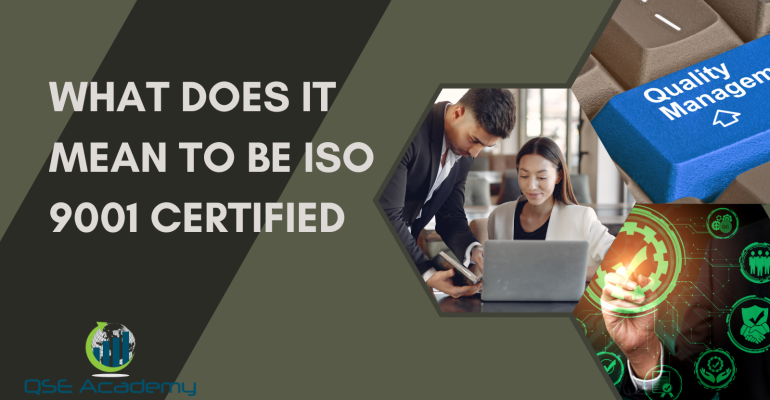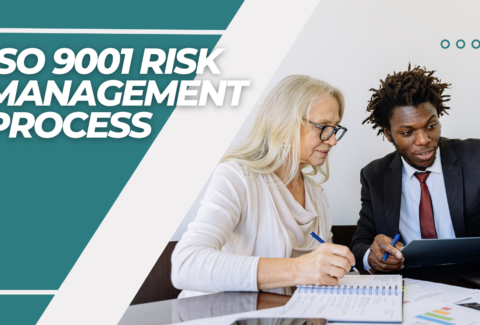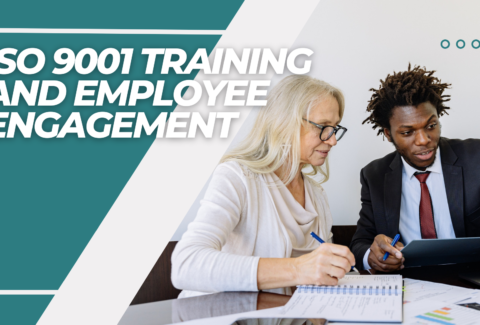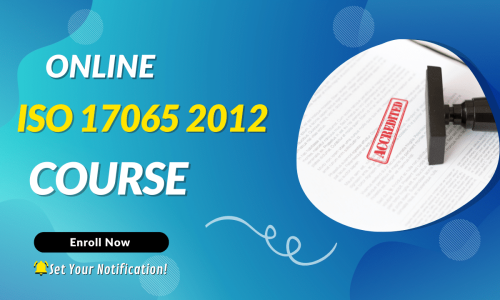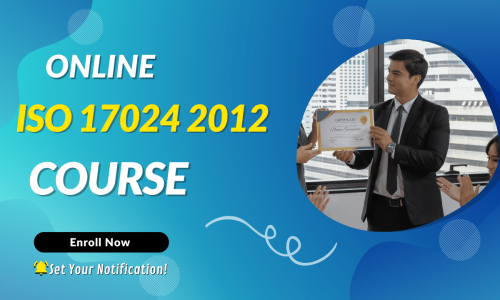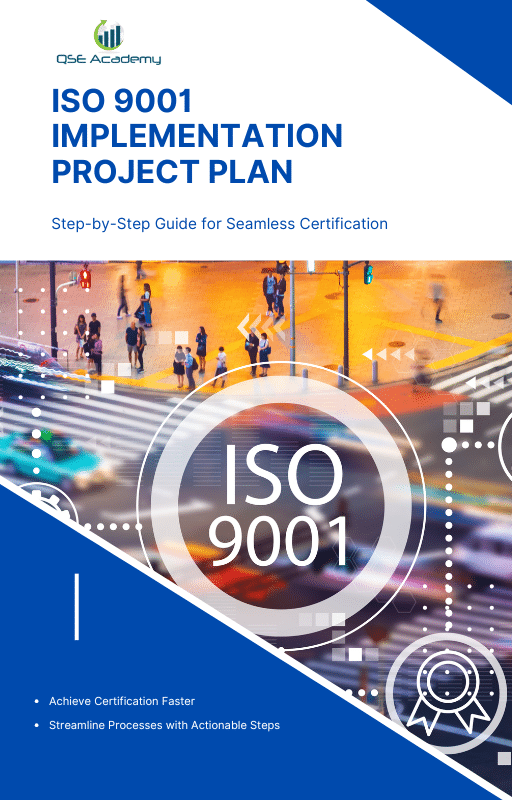What does it mean to be ISO 9001 certified?
What does it mean to be ISO 9001 certified?
Have you ever wondered what it really means to be ISO 9001 certified? Maybe you’ve heard the term tossed around in business conversations or seen it on a company’s website and thought, “Okay, but why is this such a big deal?” Well, let me break it down for you in simple terms.
To be ISO 9001 certified means a company has proven that it prioritizes quality in everything it does. It’s like having an official stamp of approval that says, “Hey, we’ve got our act together, and we’re serious about delivering the best products or services to our customers!” But it’s not just about putting up a certificate on the wall—it’s about embedding quality into the way the business operates every single day.
Think of it this way: businesses that are ISO 9001 certified follow an internationally recognized set of standards to ensure they’re organized, efficient, and customer-focused. It’s not just about fixing problems when they arise; it’s about preventing them in the first place. Companies that achieve this certification are saying, loud and clear, “You can trust us to get it right.”
And here’s the cool part: being ISO 9001 certified isn’t limited to huge corporations with endless budgets. Any organization, big or small, can work toward this certification. It’s all about committing to quality and making sure that processes run like a well-oiled machine.
So, if you’ve ever wondered why so many businesses aim to be ISO 9001 certified, now you know—it’s their way of showing the world that quality and customer satisfaction aren’t just buzzwords; they’re a way of life.
What do you think? Doesn’t that make you look at ISO 9001 certification in a whole new light?
Understanding ISO 9001 Certification
Alright, so now that we’ve scratched the surface, let’s dive a little deeper into what it really means to be ISO 9001 certified. Don’t worry, we’re keeping this simple—no complicated jargon here!
ISO 9001 is part of the ISO 9000 family of standards, which focuses on—you guessed it—quality management. Think of it as a global standard for how businesses should operate to consistently deliver quality products and services. To be ISO 9001 certified, a company must show that it has a well-structured system in place to meet customer needs and improve how it works over time.
But what does that actually look like in real life? Imagine you’re at your favorite coffee shop. You know that every time you order a latte, it’s going to taste just right—smooth, creamy, and exactly how you like it. That consistency? That’s what ISO 9001 is all about. It’s a framework that helps companies make sure they’re delivering the same high-quality experience every single time.
Now, here’s what makes it interesting: companies don’t get to just slap on the “ISO 9001 certified” label without putting in the effort. To be ISO 9001 certified, they have to meet specific criteria, including having a clear focus on customers, solid leadership, and a culture of continuous improvement. It’s not just about ticking a few boxes—it’s about creating a mindset where quality becomes second nature.
Another important thing to know is that this certification is recognized around the world. So, when a business achieves it, they’re basically saying, “We’re playing at an international level, and you can count on us to deliver the best.” Whether it’s a small startup or a massive corporation, businesses of all sizes can aim to be ISO 9001 certified—it’s not about how big you are; it’s about how committed you are to doing things right.
So, in short, to be ISO 9001 certified means you’re part of a global club of businesses that have made quality their top priority. It’s like earning a gold star in customer trust and operational excellence—and who doesn’t want that?
Why Businesses Choose to Be ISO 9001 Certified
So, you might be wondering, “Why do so many businesses go through all the effort to be ISO 9001 certified? Is it really worth it?” The short answer is yes, absolutely! But let me explain why this certification is such a game-changer for businesses of all shapes and sizes.
First and foremost, being ISO 9001 certified shows that a business truly cares about its customers. When a company decides to be ISO 9001 certified, it’s making a clear promise: “We’re here to deliver quality you can count on.” Customers love that! Whether it’s a product or a service, people want to know they’re dealing with a business that takes quality seriously.
But it’s not just about impressing customers. Businesses that become ISO 9001 certified also reap a ton of internal benefits. For one, it forces them to take a closer look at how they operate. Are their processes efficient? Are they meeting goals? Are they always looking for ways to improve? The certification process encourages organizations to fine-tune their systems, which often leads to higher productivity and fewer headaches down the road.
Another huge benefit? A competitive edge. Let’s face it—customers and partners are more likely to trust a company that can back up its claims of quality with an internationally recognized certification. To be ISO 9001 certified is like having a badge of honor that says, “We’re serious about being the best.” It can even open up opportunities to work with bigger clients or enter new markets where ISO certification is a requirement.
And here’s something a lot of people don’t realize: being ISO 9001 certified can save a company money. How? By streamlining processes, reducing waste, and avoiding mistakes that cost time and resources. When everything runs smoothly, costs go down, and profits go up—it’s a win-win situation.
Finally, there’s the confidence factor. When a company chooses to be ISO 9001 certified, it sends a strong message to employees, customers, and stakeholders: “We’re committed to excellence.” That sense of trust and reliability is invaluable in today’s competitive world.
So, whether it’s about building customer trust, improving internal processes, or standing out in the marketplace, the decision to be ISO 9001 certified is a smart move for any business looking to grow and succeed. And let’s be honest, who doesn’t want to be known as a company that truly delivers on its promises?
What It Takes to Be ISO 9001 Certified
So, what does it actually take to be ISO 9001 certified? Is it as simple as filling out some forms and calling it a day? Not quite. Getting ISO 9001 certified is a process—but don’t worry, it’s totally achievable with the right approach. Let me walk you through it.
First, a business needs to put a Quality Management System (QMS) in place. Now, before your eyes glaze over, let me explain. A QMS is basically a set of processes and procedures that ensure everything runs smoothly and meets customer expectations. It’s like creating a detailed playbook for how your business operates—from how you handle customer orders to how you improve your products or services. To be ISO 9001 certified, this system needs to align with the requirements laid out in the ISO 9001 standard.
Next comes the preparation phase. This is where businesses take a good, hard look at how they’re currently operating. Are there any gaps between what they’re doing and what ISO 9001 requires? This is called a gap analysis, and it’s like doing a fitness assessment before starting a workout plan. You need to know where you stand before making improvements.
Once the gaps are identified, it’s time to roll up your sleeves and make the necessary changes. This might involve training employees, documenting processes, or improving communication across teams. It’s not just about ticking boxes—it’s about creating a culture where quality becomes second nature. Companies that want to be ISO 9001 certified need everyone on board, from top leadership to frontline employees.
Then comes the big moment: the audit. To be ISO 9001 certified, a company must go through an official audit conducted by an accredited certification body. Think of it as a quality check where an external expert reviews your systems to make sure they meet the ISO 9001 requirements. The auditor will look at things like how you handle customer feedback, how you measure success, and how you keep improving over time.
Finally, if the company passes the audit, they’ll officially be ISO 9001 certified! But here’s the thing—this isn’t a one-and-done deal. Maintaining certification requires regular audits and ongoing commitment to quality. It’s like staying in shape after reaching your fitness goals; you have to keep putting in the effort to stay on top.
So, while the journey to be ISO 9001 certified takes some work, it’s absolutely worth it. It’s not just about getting a certificate—it’s about building a business that’s trusted, efficient, and always improving. Doesn’t that sound like a goal worth striving for?
Key Features of an ISO 9001 Certified Organization
Alright, let’s talk about what makes a company that chooses to be ISO 9001 certified stand out from the crowd. These businesses aren’t just following a set of rules—they’re creating a system that helps them thrive while delivering the best possible experience for their customers. So, what exactly sets them apart?
First and foremost, customer focus is at the heart of everything they do. Organizations that be ISO 9001 certified make their customers a top priority. It’s not just about selling a product or service; it’s about understanding customer needs and consistently meeting or exceeding expectations. Whether it’s responding to feedback, solving problems quickly, or ensuring quality every step of the way, these companies go the extra mile to build trust and loyalty.
Another hallmark of being ISO 9001 certified is strong leadership. Companies that achieve certification don’t just focus on processes—they also focus on people. Leadership plays a key role in making sure everyone is aligned and working toward the same goals. To be ISO 9001 certified, leaders need to inspire their teams, foster collaboration, and set a clear direction for achieving quality at every level of the organization.
Then there’s the process-oriented approach. You know how some businesses just seem to run like a well-oiled machine? That’s because they’ve mastered their processes. ISO 9001-certified companies analyze every step of their operations to make sure they’re efficient, consistent, and delivering the best possible results. From production to customer service, every process is designed to add value and avoid waste.
Continuous improvement is another key feature. To be ISO 9001 certified means you’re never satisfied with “good enough.” These organizations are always looking for ways to do better—whether it’s improving efficiency, reducing errors, or finding innovative solutions. It’s a mindset that keeps them ahead of the game, even in a competitive market.
And let’s not forget the emphasis on employee involvement. Companies that be ISO 9001 certified know that their people are their greatest asset. Employees are encouraged to take ownership of their work, share ideas, and play an active role in driving quality improvements. When everyone is invested in the process, the results speak for themselves.
So, what does all this mean? Organizations that choose to be ISO 9001 certified are built on a foundation of trust, consistency, and innovation. They don’t just meet the standard—they live it, day in and day out. And that’s why customers and stakeholders alike have so much confidence in them. Wouldn’t you want to work with a business like that?
Real-Life Benefits of Being ISO 9001 Certified
Okay, let’s get into the good stuff—what’s in it for businesses that choose to be ISO 9001 certified? Sure, we’ve talked about quality and processes, but how does it all translate into real-world results? Spoiler alert: the benefits are pretty impressive.
First up, customer satisfaction. When a company decides to be ISO 9001 certified, it’s making a promise to its customers: “We’ll deliver quality, consistently.” And guess what? Customers notice! Whether it’s fewer defective products, faster delivery times, or better customer service, businesses that achieve certification tend to have happier, more loyal customers. And happy customers often mean repeat business and glowing recommendations—two things every company loves.
Next, let’s talk about efficiency. One of the core ideas behind ISO 9001 is streamlining how a business operates. By identifying what works, fixing what doesn’t, and cutting out unnecessary steps, companies can save time and resources. Think of it like organizing your closet—you know where everything is, so getting ready in the morning is a breeze. To be ISO 9001 certified is to run your business like a well-organized machine, and that often leads to higher productivity and lower costs.
Speaking of saving money, being ISO 9001 certified can help reduce waste. When processes are clear and consistent, there’s less room for errors or rework, which means fewer wasted materials, time, and effort. It’s like having a recipe that’s been perfected—no more trial and error, just great results every time.
But the benefits don’t stop there. Companies that be ISO 9001 certified also gain a competitive edge. Imagine you’re choosing between two businesses offering similar products or services. One has an internationally recognized certification for quality, and the other doesn’t. Which one would you trust more? Exactly. ISO 9001 certification gives businesses a credibility boost that can open doors to new opportunities, bigger clients, and even international markets.
And here’s a fun one: employee morale often improves, too. When a company decides to be ISO 9001 certified, it’s not just about systems and processes—it’s about creating a culture where everyone is working toward the same goals. Employees feel valued, engaged, and motivated when they see how their work contributes to the bigger picture. A happy team is a productive team, and that’s a win for everyone.
So, whether it’s building trust with customers, running operations more smoothly, or creating a better workplace, the decision to be ISO 9001 certified pays off in more ways than one. Doesn’t it make you wonder why every business doesn’t aim for this?
Myths About Being ISO 9001 Certified
Let’s clear the air—there are quite a few myths floating around about what it takes to be ISO 9001 certified. Some of these myths might even make businesses hesitant to go for it, but trust me, most of them couldn’t be further from the truth. Let’s bust a few of the big ones, shall we?
Myth #1: “Only big companies can be ISO 9001 certified.”
This one pops up all the time, but it’s simply not true. The ISO 9001 standard is designed to work for organizations of any size, from small family-owned businesses to global corporations. Whether you’re running a small bakery or a large manufacturing plant, you can tailor the requirements to fit your specific needs. To be ISO 9001 certified isn’t about how big your company is—it’s about your commitment to quality.
Myth #2: “It’s too complicated and expensive.”
Sure, getting certified does take effort, but it’s not as overwhelming as some people think. The process is actually pretty straightforward when you break it down into manageable steps. Plus, the cost of certification is often outweighed by the benefits it brings, like improved efficiency, fewer mistakes, and happier customers. Many businesses that become ISO 9001 certified actually end up saving money in the long run because they streamline their processes and reduce waste. So, while there’s an upfront investment, it’s one that pays off.
Myth #3: “ISO 9001 certification is just a piece of paper.”
This one couldn’t be more wrong. To be ISO 9001 certified means a lot more than hanging a certificate on the wall. It’s a sign that your business is committed to delivering consistent quality, improving processes, and putting customers first. It’s a mindset and a way of working that sets businesses apart. The certification isn’t just a badge—it’s a reflection of a company’s dedication to doing things right.
Myth #4: “It’s only for manufacturing companies.”
While it’s true that many manufacturers choose to be ISO 9001 certified, this standard applies to businesses in any industry. From healthcare and education to retail and tech, organizations across the board can benefit from the principles of ISO 9001. After all, who doesn’t want to improve quality, boost customer satisfaction, and create better systems?
Myth #5: “Once you’re certified, you’re done.”
Not quite! To be ISO 9001 certified means committing to ongoing improvement. Certification isn’t a one-time achievement—it’s an ongoing process. Businesses need to maintain their systems, adapt to changes, and keep finding ways to get better. Regular audits ensure that companies stay on track and continue to meet the standard.
So, if these myths have been holding you back from exploring what it takes to be ISO 9001 certified, now’s the time to set them aside. The process might not be as daunting as you think, and the rewards are absolutely worth it. Ready to dive in? Let’s keep going!
How to Start the Journey to Be ISO 9001 Certified
Thinking about starting the journey to be ISO 9001 certified? That’s a fantastic decision! But where do you begin? Don’t worry—it might seem like a big task at first, but with the right steps, it’s completely doable. Let me walk you through it.
Step 1: Understand What ISO 9001 Is All About
Before diving in, it’s important to know what ISO 9001 really means for your business. At its core, it’s about creating a Quality Management System (QMS) that helps you consistently meet customer needs and improve how your business operates. To be ISO 9001 certified, you’ll need to align your processes with the standard’s requirements. But don’t stress—it’s not about reinventing the wheel; it’s about organizing what you already do and finding ways to improve it.
Step 2: Conduct a Gap Analysis
A gap analysis is like taking stock of where you are right now. Look at your existing processes and compare them to the requirements of ISO 9001. Are there any gaps? Maybe some procedures aren’t documented, or there’s room for improvement in customer feedback handling. Identifying these gaps is the first real step toward becoming ISO 9001 certified, and it helps you focus on what needs to be done.
Step 3: Get Your Team on Board
Here’s the thing: you can’t be ISO 9001 certified without your team’s support. Everyone in the organization plays a role in maintaining quality, so it’s crucial to involve your employees from the start. Share why you’re pursuing certification and how it benefits them, the company, and your customers. A little training on the basics of ISO 9001 can go a long way in getting everyone excited and aligned with the goal.
Step 4: Develop and Document Your Processes
To be ISO 9001 certified, your processes need to be clear, consistent, and documented. This doesn’t mean burying your team in paperwork—it’s about creating useful guidelines that make everyone’s job easier. From how you handle customer complaints to how you track inventory, documenting your processes ensures that everyone knows what to do and how to do it right.
Step 5: Implement Changes and Improvements
Once you’ve identified gaps and updated your processes, it’s time to put them into action. This might involve tweaking workflows, improving communication between teams, or introducing new tools to make things more efficient. Remember, the goal is to create a system that works smoothly and helps your business deliver top-notch quality every time.
Step 6: Prepare for the Audit
Before you can officially be ISO 9001 certified, you’ll need to pass an external audit conducted by an accredited certification body. Think of it as a quality check to ensure everything is in place. The auditor will look at how your QMS is implemented, how your team follows processes, and how you’re continuously improving. It’s not about perfection—it’s about showing you’ve put in the effort and are committed to quality.
Step 7: Celebrate and Maintain Certification
Congratulations! Once you’ve passed the audit, you’ll officially be ISO 9001 certified. But don’t stop there—certification is an ongoing journey. To keep your certification, you’ll need to continue improving, adapting to changes, and undergoing regular audits. Think of it as a way to stay sharp and ahead of the game.
Starting the journey to be ISO 9001 certified might feel overwhelming at first, but when you break it down step by step, it’s completely manageable. And remember, it’s not just about the certificate—it’s about building a business that’s trusted, efficient, and always striving for better. Ready to take the first step? You’ve got this!
Conclusion: What It Truly Means to Be ISO 9001 Certified
So, now that we’ve walked through the ins and outs, what does it really mean to be ISO 9001 certified? At its core, it’s about more than just a certificate on the wall. It’s a commitment to quality—quality in your processes, your products, and how you serve your customers. It’s a way of showing the world, “Hey, we take this seriously, and we’re dedicated to doing things right.”
To be ISO 9001 certified means you’ve invested in building a solid foundation for your business. It means you’ve taken the time to organize, improve, and set yourself apart from the competition. And whether you’re a small startup or a global corporation, the benefits are undeniable—happier customers, smoother operations, and a well-earned reputation for excellence.
But perhaps the most powerful part of being ISO 9001 certified is what it says about your mindset as a business. It shows that you’re always looking to grow, adapt, and improve. You’re not just meeting expectations; you’re raising the bar for yourself, your team, and your customers. That kind of commitment speaks volumes, doesn’t it?
So, if you’re thinking about taking the leap to be ISO 9001 certified, just know that the effort is worth it. Whether you’re building trust with your customers, empowering your employees, or creating a competitive edge, this certification is a game-changer for any organization.
And remember, it’s not just about achieving certification—it’s about maintaining it and keeping quality at the heart of everything you do. To be ISO 9001 certified isn’t just a goal; it’s a way of working, a way of thinking, and ultimately, a way of succeeding.
Ready to take that first step? The journey might seem challenging, but the rewards make it more than worth it. Your customers, your team, and your business will thank you for it. So, why not start today? Let’s go!
Looking for More Resources on ISO 9001?
Looking for ISO 9001 Resources Tailored to Your Industry?
If this article helped clarify ISO 9001, take the next step with our industry-focused tools designed to simplify your certification journey:
📦 ISO 9001 Documentation Kits by Industry: Whether you’re in manufacturing, construction, consulting, or healthcare — we have complete, ready-to-use documentation tailored for your sector.
🎓 Online ISO 9001 Training: Learn how to implement ISO 9001 effectively with our easy-to-follow video lessons, real-world examples, and practical exercises.
📋 ISO 9001 Checklist: Download our step-by-step checklist to ensure your QMS meets all the 9001:2015 requirements from start to finish.
These resources are crafted to save you time, reduce stress, and help you achieve certification with confidence. Choose your industry and start now!

make ISO standards less intimidating and more approachable for everyone.
Whether it’s ISO 9001, ISO 22000, or the cosmetics-focused ISO 22716,
I’ve spent my career turning complex jargon into clear, actionable steps
that businesses can actually use. I’m not here to call myself an expert—I prefer “enthusiast” because I truly love what I do.
There’s something incredibly rewarding about helping people navigate food safety and quality management systems
in a way that feels simple, practical, and even enjoyable.
When I’m not writing about standards, you’ll probably find me playing Piano 🎹, connecting with people, or diving into my next big project💫.
- I’m an engineer specialized in the food and agricultural industry
- I have a Master’s in QHSE management and over 12 years of experience as a Quality Manager
- I’ve helped more than 15 companies implement ISO 9001, ISO 22000, ISO 22716, GMP, and other standards
- My clients include food producers, cosmetics manufacturers, laboratories, and service companies
- I believe quality systems should be simple, useful, and efficient
- Outside of work, I play piano and love learning something new every day
Let’s make ISO less about stress and more about success! 🙏

